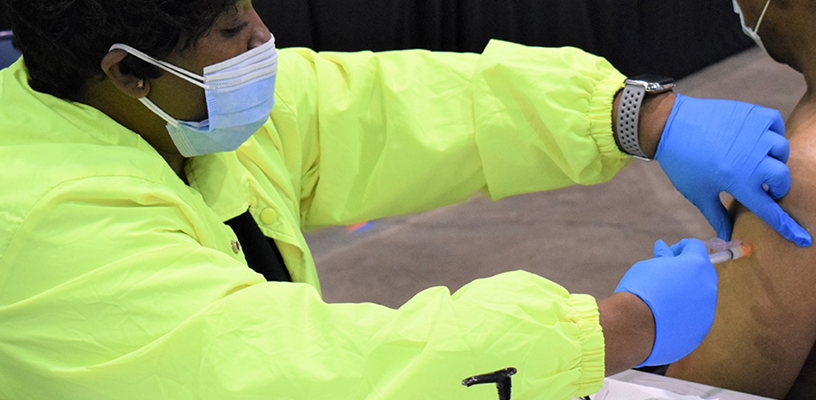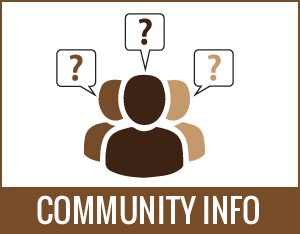
- By Todd Luck
- Posted Friday, February 12, 2021
Forsyth Public Health, Wake Forest Baptist and Novant partner to increase minority vaccination
Forsyth County Department of Public Health, Novant Health, and Wake Forest Baptist Health are partnering to increase the number of COVID-19 vaccinations in historically marginalized populations.
These three organizations are coordinating and collaborating to increase awareness of and access to the COVID-19 vaccine for historically marginalized populations (HMP). They will hold events and do outreach both jointly and as individual organizations to optimize coverage and access. All three organizations have taken steps towards making vaccinations accessible by:
- Sharing staff, vaccine and logistical support among the three organizations and with other governmental organizations such as Federally Qualified Health Centers (FQHC)
- Offering evening and weekend appointments
- Partnering with the Winston-Salem Transit Authority to offer free transportation to vaccination appointments, which is available by calling 336-727-2000 or 336-727-2648
- Conducting highly-targeted outreach through social media and paid advertisement and working with community partners, including local churches and the Hispanic League
- Jointly working with business leaders to provide support for vaccine events
- Working with the state to provide more vaccine to our region
Through these, and other efforts, Forsyth County is among the leading N.C. counties in number of residents vaccinated and is making progress toward the goal of having more than 40% of COVID-vaccinated individuals be members of historically marginalized populations, which is proportionate to the demographics of the county.
“The Forsyth County Department of Public Health is dedicated to ensuring that historically marginalized populations have equitable access to this safe and effective vaccine,” said Forsyth County Deputy County Manager and Health and Human Services Director Shontell Robinson. “All parts of our community need to be vaccinated to end this pandemic. We are grateful for our continued partnership with the hospital systems to holistically serve our residents.”
“Every person in our community deserves to be healthy and protected from COVID-19,” said Dr. Pam Oliver, executive vice president and president of Novant Health’s physician network. “We recognize the longstanding barriers that marginalized communities face, as well as the disproportionate impact COVID-19 has had on communities of color. Working with our community partners, we will ensure that no one in our community is left behind.”
“Wake Forest Baptist Health values this important partnership to serve our community,” said Wake Forest Baptist President Dr. Kevin High. “We are providing vaccines within centers that serve historically marginalized populations such as our Downtown Health Plaza, partnering with FQHCs, faith organizations and others at pop-up weekend vaccine events and educational events, and proactively calling our patients within historically marginalized populations to fill available appointments to overcome vaccine hesitancy and more toward equitable access.”






